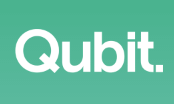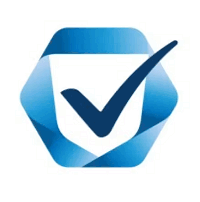Yes, most tag management software is compatible with different devices and platforms. Users benefit from increased flexibility and convenience, since they can view and control their tags from any device with an internet connection. However, it is critical to consult with the tag management software vendor to ensure compatibility with all devices and platforms.
List of Best Tag Management Software
Qubit the marketing platform according to Forrester. Utilize advanced analytics, A/B testing, and optimization tools to create personalized and targeted customer experiences. With Qubits customizable solutions and data science expertise, businesses c...Read More Qubit
MetaRouter is a server-side customer data infrastructure designed for optimal speed and security. Our platform is dedicated to optimizing performance, ensuring compliance, and maintaining control over personal data, ultimately enhancing website accur...Read More MetaRouter
ConsentManager.net is a consent management software that adheres to GDPR and CCPA guidelines. Boasting of multilingual support and customizable designs, it provides a seamless experience for website owners and their visitors. Its advanced components...Read More ConsentManager.net
Securiti is a data management platform that combines security, privacy, governance, and compliance functionalities. It seamlessly integrates with various systems, simplifying data control and ensuring safe handling of sensitive data in hybrid multicl...Read More Securiti
TagCommander is a marketing solution that helps businesses collect and control valuable customer data in real-time, without relying on cookies. With a server-side approach, this platform offers a variety of robust tools for enhancing data management,...Read More TagCommander
Ensighten Manage is a tool that streamlines tag management, enhances website security, and enables consent management. With this all-in-one solution, companies can effortlessly manage their digital assets, safeguard against online threats, and comply...Read More Ensighten Manage
Falcon Tag Audit is a tag management solution designed to enhance website performance. This easy-to-use tool offers real-time analytics and a user-friendly interface to ensure accuracy, compliance, and error elimination. Gain valuable insights and op...Read More Falcon Tag Audit
Signal Tag Management is a software designed to streamline digital marketing processes. With seamless tag deployment, real-time analytics, and accurate data, our tool empowers users to enhance campaigns and make data-driven decisions effortlessly. Si...Read More Signal Tag Management
Google Tag Manager - tool that simplifies the management and updating of website tags, eliminating the need for any coding. This streamlines marketing efforts, providing real-time data and enabling personalized experiences for customers. With its int...Read More Google Tag Manager
CampaignTrackly solution for effortless campaign management. Our innovative URL builder and tracking tool automates processes, boosts productivity, and ensures accurate data. With seamless integration with top platforms, our tool saves time for marke...Read More CampaignTrackly
Adobe Launch - an advanced tag management solution that streamlines the deployment of marketing technologies. This all-in-one platform offers live data tracking, seamless integration, and user-friendly interfaces, empowering businesses to improve the...Read More Adobe Launch
TagControl - an advanced digital experience platform specifically designed to support businesses in building profitable and seamless digital experiences. Our platform boasts a wide range of features, including customizable templates, customer segment...Read More TagControl
Tealium iQ - a tag management solution that streamlines and consolidates marketing technology for businesses. With its real-time data collection, seamless integrations, and advanced data governance capabilities, Tealium iQ provides accurate and actio...Read More Tealium iQ
Clym is is the solution for website compliance with global data privacy and accessibility regulations. This powerful software seamlessly integrates into your website, offering a user-friendly interface and efficient automation to guarantee that all l...Read More Clym
Learn More About Tag Management Software
- What Is Tag Management Software?
- What Are The Recent Trends In Tag Management Software?
- Benefits Of Using Tag Management Software
- Important Factors To Consider While Purchasing Tag Management Software?
- What Are The Key Features To Look For In Tag Management Software?
- Why Do Businesses Need Tag Management Software?
- How Much Time Is Required To Implement Tag Management Software?
- What Is The Level Of Customization Available In Tag Management Software?
- Which Industries Can Benefit The Most From Tag Management Software?
- Conclusion
What Is Tag Management Software?
Tag management software is a useful tool for organizations to organize and manage the many tags, or code snippets, that are used to measure website analytics, monitor online advertising, and enhance website performance. It makes it easier to add, amend, and remove tags without requiring human coding or IT expertise.
This program features a uniform interface that allows users to effortlessly integrate and deploy tags from numerous tracking providers, including Google Analytics and Facebook Ads. It offers a unified platform for managing tags, assuring consistency and accuracy throughout all marketing campaigns. Furthermore, it minimizes the possibility of human error while reducing the time and resources required for tag establishment and maintenance.
Tag management software also includes complex capabilities like version control, data layer management, and debugging tools to assist organizations in successfully managing their website tags. Its real-time data tracking and reporting features give marketers significant insights into making data-driven decisions and improving the overall performance of their website.
What Are The Recent Trends In Tag Management Software?
In recent years, tag management software has become more popular among enterprises of all kinds. This sophisticated tool enables marketers and website administrators to effortlessly manage and track the multitude of tags used for numerous purposes, including analytics, marketing, and personalization. One of the most visible developments in tag management software is the shift to cloud-based solutions.
This facilitates deployment and maintenance, as well as improves security and scalability. Furthermore, many tag management services are introducing complex capabilities like real-time data tracking and interaction with other marketing tools. Another key development is the adoption of a more user-friendly and intuitive interface.
This is critical for non-technical users who do not have coding knowledge but need to employ tags in their marketing campaigns or website optimization. Tag management software is currently designed to be easy to use and requires little training, making it accessible to all users. In terms of functionality, there is a growing demand for data privacy and compliance elements.
This includes tools to ensure GDPR and CCPA compliance, as well as data governance and consent management. As data protection requirements tighten, these characteristics are becoming increasingly important for businesses to protect their customers' personal information. Furthermore, there is a rising emphasis on using artificial intelligence (AI) and machine learning (ML) in tag management software.
These technologies can assess and adjust tags in real time, increasing the accuracy and efficiency of tracking and data capture. Finally, there is an effort to integrate with various marketing and analytics tools. Many tag management services now feature pre-built connections with major programs like Google Analytics, Facebook Ads, and Adobe Analytics, allowing for easier data sharing and more powerful reporting.
Benefits Of Using Tag Management Software
Tag management software is a useful tool for firms who want to streamline their website tagging and data management procedures. It is intended to make it easier to manage website tags, which are pieces of code that follow user behavior and collect key data points for digital marketing and analytics.
Let's explore, we'll look at the primary advantages of adopting tag management software and how it can benefit your business.
1. Centralized Tag Management: One of the key advantages of adopting tag management software is the ability to centrally manage all of your website tags from one location. This eliminates the need for manual coding and gives you control over your tags via a user-friendly dashboard. A centralized method allows you to easily add, amend, and remove tags, saving time and money.
2. Improved Efficiency And Speed: Tag management software streamlines the tagging process, making it faster and more efficient than manual techniques. This means you can add new tags or edit old ones with a few clicks, rather than spending hours writing code. This greater efficiency can also result in faster page load times, which enhances the overall user experience.
3. Improved Website Performance: Tag management software allows you to prioritize which tags are fired first, minimizing the time it takes for your website to load. This can be critical for increasing website performance, particularly for e-commerce companies where even a few seconds of delay can result in lost sales.
4. Accurate Data Collection: Having too many or obsolete tags on your website might result in inaccurate data collecting, skewing your digital marketing and analytics efforts. Tag management software keeps your tags organized and ensures that only the relevant tags are fired, which leads to more accurate data collecting.
5. Real-Time Tag Monitoring: Tag management software gives you real-time visibility into which tags are active on your website and how they are functioning. This enables you to rapidly troubleshoot any difficulties and ensure that all of your tags function properly.
6. Improved Data Privacy And Security: With tag management software, you can easily manage user consent and regulate which tags are triggered based on the user's permissions. This helps to ensure compliance with data privacy laws and regulations, which protects your customers' sensitive information.
Important Factors To Consider While Purchasing Tag Management Software?
When it comes to choosing the best tag management software for your company, there are various variables to consider. This allows you to make an informed decision and select the platform that best meets your individual requirements.
Here are some important factors to bear in mind while selecting tag management software:
1. Website Compatibility: Before investing in tag management software, ensure that it is compatible with your website's platform and content management system. This will enable a smooth implementation and integration with no technical concerns.
2. Usability: The program should be simple and straightforward to use for both technical and non-technical users. It should have a simple and user-friendly design, as well as extensive documentation and assistance to help you get started.
3. Tag Creation And Administration Capabilities: The primary job of tag management software is to create and manage tags efficiently. It is critical to select a platform that provides a diverse range of tag generation choices and allows you to manage and update tags in real time.
4. Data Security: Given the growing importance of data privacy, it is critical to choose tag management software that prioritizes data protection. Look for features like data encryption, user access limits, and adherence to data protection rules.
5. Integrations And Plugins: Tag management software should be compatible with a wide range of third-party applications and platforms, including Google Analytics, Facebook Ads, and email marketing software. This will make it easy to track and evaluate data from many channels.
6. Customization Options: Each organization has distinct requirements, and your tag management software should be able to meet them. Look for platforms that include customization possibilities, such as adding new events and rules, to fit the software to your specific needs.
7. Reporting And Analytics: The software should include extensive reporting tools that allow you to track the performance of your tags and make data-driven decisions. Real-time data, customisable dashboards, and A/B testing are all elements to look for when optimizing your tag management strategy.
8. Pricing: Tag management software is available in a variety of pricing schemes, including subscription-based, pay-as-you-go, and one-time payment. Consider your budget and the characteristics you need to discover the greatest solution for the money.
What Are The Key Features To Look For In Tag Management Software?
When selecting Tag Management Software, you need carefully consider numerous crucial features. These features will help you select the best solution for your business needs and get the most out of your investment.
1. Ease Of Use: The software's user-friendliness is a crucial feature to consider. It is critical that the software is straightforward and simple to use, so that your team can quickly learn and apply it without any technical knowledge.
2. Integration Capabilities: The tag management software should be able to work with your existing systems and platforms, including your website, CRM, analytics tools, and email marketing tools. This will enable a smooth flow of data and increase the efficiency of your marketing activities.
3. Customization Choices: Each organization has various tagging needs, and your tag management software should provide configurable choices to fulfill their specific requirements. Look for a solution that lets you define custom tags, triggers, and rules to meet your specific business requirements.
4. Data Governance: As data privacy and security become more important, it is critical to select tag management software that includes strong data governance features. This includes data encryption, role-based access control, and backup and recovery capabilities.
5. Real-Time Tag Monitoring: Your tag management software should allow you to monitor your tags in real time to assure their accuracy and functionality. This will allow you to quickly detect and resolve any difficulties, saving you time, effort, and significant revenue loss.
6. Mobile Compatibility: As more people use the internet via mobile devices, it is critical to select tag management software that is mobile-friendly. This allows you to manage your tags while on the go, no matter where you are.
7. A/B Testing: A good tag management software should include A/B testing functionality. This allows you to conduct experiments and evaluate various tag setups to see which works best for your business.
8. Customer Support: Finally, think about the level of customer support provided by the tag management software vendor. Look for a system that offers 24/7 customer assistance and has a professional and responsive support crew to assist you with any concerns or questions. By evaluating these critical aspects, you may select the appropriate tag management software to meet your company's objectives and boost your marketing efforts. Make sure to thoroughly research and evaluate various possibilities in order to make an informed decision and get the most out of your investment.
Why Do Businesses Need Tag Management Software?
Tag Management Software (TMS) has emerged as a vital tool for businesses of all kinds in today's digital economy. This program simplifies the process of managing tracking tags on websites and mobile apps, making it an invaluable tool for any marketing or analytics organization.
There are various reasons why firms need Tag Management Software, including:
1. Simplify Tag Management: Without a TMS, marketers and developers must manually create and update tracking tags for each new campaign. This technique can be time-consuming and error-prone. A TMS stores all tags in one central area, making it simple to manage and update them.
2. Improve Website Performance: Each additional tag on a website can slow down the loading speed, resulting in a poor user experience. However, with a TMS, tags are loaded asynchronously, which means they have no effect on page load time, resulting in improved website performance.
3. Improve Data Accuracy: TMS enables the simple implementation of tags on websites and apps, removing the possibility of human error and ensuring that data is captured correctly. This is critical for making sound marketing decisions and tactics.
4. Manage Several Vendors: Many firms employ several vendors for a variety of functions, including advertising, analytics, and customer service. TMS streamlines the process of adding and updating tags from various providers, removing the need for manual coding and lowering reliance on IT workers.
5. Extensive Tag Capabilities: TMS has extensive tag capabilities that allow firms to do more than simply track. It enables event tracking, automated data collecting, and customisation, offering organizations a better insight of their customers' behavior on their digital assets.
How Much Time Is Required To Implement Tag Management Software?
Tag management software enables marketers and website owners to effortlessly manage and change the tags and tracking codes on their websites without requiring considerable coding skills. This not only saves time, but also assures that data is accurately and consistently tracked. The time required to implement tag management software varies depending on the website's size and complexity, the number of tags that must be maintained, and the level of customization necessary. However, the installation procedure can last anything from a few days to a number of weeks.
Here are some important steps in installing tag management software:
1. Planning and Configuration: During this phase, you will set up the tag management system, create containers, and define tag deployment rules. This can take 1-2 days, depending on the website's complexity.
2. Tag Testing: Once the tags have been set up, they must be properly tested to ensure that they are tracking the relevant data and firing on the appropriate pages. This can take anywhere between 2 and 5 days, depending on the quantity of tags and the quality of testing required.
3. Deployment: Once the tags have been validated and confirmed to work properly, they may be deployed to the live website. This process usually takes 1-2 days, however it may vary depending on the size of the website.
4. Customization: If any adaptations are required, such as custom tracking codes or platform interfaces, the implementation process may take a few days longer. Overall, tag management software setup takes about 1-2 weeks, however this can vary depending on a website's individual requirements. It is crucial to note that, while the initial setup may take some time, using tag management software can save time in the long term by allowing for quick tag administration and upgrades without the need for a developer.
What Is The Level Of Customization Available In Tag Management Software?
Tag management software provides a variety of customization possibilities, allowing firms to adjust their tagging and tracking procedures to their specific requirements. This level of flexibility is critical for accurate and efficient data gathering, management, and analysis. For starters, most tag management software allows you to create custom tags. This means that firms can create their own tags instead of being limited to pre-defined options.
This allows businesses to track specific data points related to their operations and goals. In addition to establishing unique tags, tag management software allows you to customize rules and triggers. This means that firms may specify when tags should fire, making the tagging process more efficient and precise. A trigger, for example, can be configured to fire when a user navigates to a given page or performs a specific action on the website.
Additionally, tag management software provides customizable possibilities for data gathering and storage. This includes the flexibility to choose which data points to collect and how they are structured. Businesses can also select the type of storage, such as cookies or server-side storage, based on their privacy and security requirements.
Furthermore, some tag management software allows users to create custom variables. This enables organizations to identify the type of data they wish to collect, such as client demographics or product specifics, and then assign it a specific variable. It gives organizations more control over data collection and helps them make better decisions based on specific data points.
Which Industries Can Benefit The Most From Tag Management Software?
Tag Management Software (TMS) has become an essential tool for internet organizations aiming to streamline their website tagging procedures. TMS provides numerous benefits across a variety of industries, including e-commerce, retail, healthcare, and media.
Let's explore, we'll look at the several industries that can benefit most from Tag Management Software.
1. E-Commerce: In the fast-paced world of e-commerce, agility and quickness are critical to success. Tag Management Software enables online businesses to swiftly and easily manage all of their website tags, reducing the time and effort required for manual coding. This enables e-commerce enterprises to create fresh marketing initiatives and track performance in real time, providing a competitive advantage.
2. Retail: In recent years, the retail business has shifted dramatically toward online channels. Brick and mortar stores can use Tag Management Software to easily connect offline and online data, delivering a single view of customer behavior. This allows them to provide a more personalized buying experience, perhaps leading to higher client retention and loyalty.
3. Healthcare: The healthcare industry handles a large volume of patient data, thus correct and orderly website tagging is critical. Tag Management Software helps healthcare organizations manage and organize their website tags, guaranteeing compliance with standards like HIPAA. TMS also enables for more accurate tracking of online campaigns and conversions, assisting healthcare firms in optimizing their marketing efforts.
4. Media: Media organizations rely largely on precise data to make informed judgments and increase income. Tag Management Software allows media firms to effortlessly manage their website tags and measure their audience's behavior across several platforms. This information can then be utilized to customize content and advertising depending on audience interests and preferences, resulting in higher engagement and revenue.
5. Travel And Hotel: The travel and hotel industries are very competitive, with customers demanding a flawless and personalized online experience. These organizations can use Tag Management Software to manage their website data and track client interactions, allowing them to deliver targeted and relevant content. This can lead to higher client satisfaction and an increase in bookings and reservations.
Conclusion
In conclusion, investing in tag management software is a wise move for any company trying to improve its digital marketing efforts. Its ability to easily manage and organize tags saves procedures, improves website performance, and delivers useful insights into customer behavior. When selecting a tag management solution, it is critical to thoroughly review your company's demands and compare the features and capabilities of each product.
Consider the ease of use, customization choices, and interaction with other marketing tools. Furthermore, it is critical to choose a trustworthy and respected vendor who provides outstanding customer service and timely updates. A comprehensive training program, as well as detailed documentation, can substantially benefit in software implementation and utilization.
Businesses that use the correct tag management software can save time and resources while also improving their online visibility. We hope this buyer's guide has offered useful information and helped you make an informed decision about your tag management requirements. Remember to always evaluate and improve your tags for best results, and enjoy tag management!
Tag Management Software FAQ's
Can Tag Management Software Be Accessed Across Multiple Devices And Platforms?
Is Tag Management Software Future-Proof And Adaptable To Emerging Technologies Like AI, Blockchain Or IoT?
Tag management software is intended to be versatile and future-proof. With the rapid growth of technology, it is critical for organizations to remain current and flexible. Tag Management Software enables easy connection with upcoming technologies such as AI, blockchain, and IoT, ensuring that your tags and tracking are always up to date. This allows firms to keep up with the ever-changing digital landscape and stay ahead of their competitors.
Is There A Free Trial Offered To Assess Tag Management Software Before Committing?
Yes, many tag management software vendors allow a free trial period to evaluate their product before committing to a subscription. This allows potential users to test out the software's features and functionalities to see if it satisfies their requirements. It is recommended that you use these free trials to make an informed decision about which tag management software is appropriate for your business.
Does Tag Management Software Offer Data Security Features And Meet Regulatory Compliance Standards?
Yes, Tag Management Software has comprehensive data security features such as access limits, encryption, and data masking to safeguard the privacy and security of your data. It also follows regulatory compliance requirements such as GDPR and CCPA, which ensure that your website complies with data privacy regulations. This helps protect your clients' data while reducing potential risks and penalties for noncompliance.
Can Tag Management Software Integrate Seamlessly With Existing Tools And Platforms?
Yes, most tag management software (TMS) integrates well with existing tools and platforms. TMS works by delivering a single code snippet to your website that manages all of your tags, removing the need for different tags and codes. This allows you to easily integrate and work with your existing marketing tools and platforms, such as Google Analytics, Facebook Ads, and others. TMS enables a streamlined and effective workflow, which improves website performance and data quality.
















